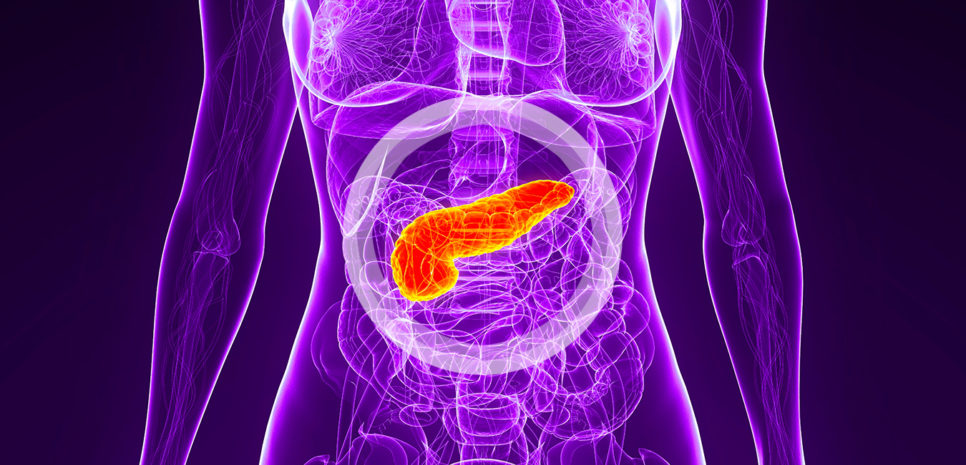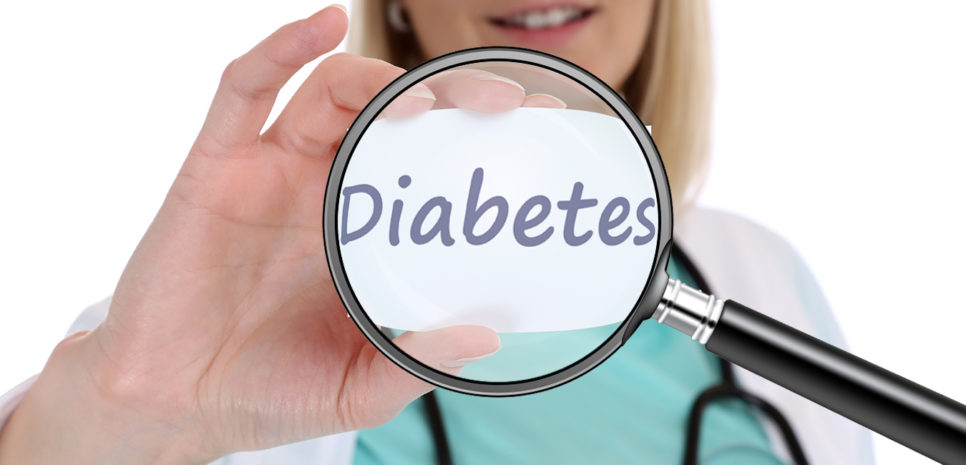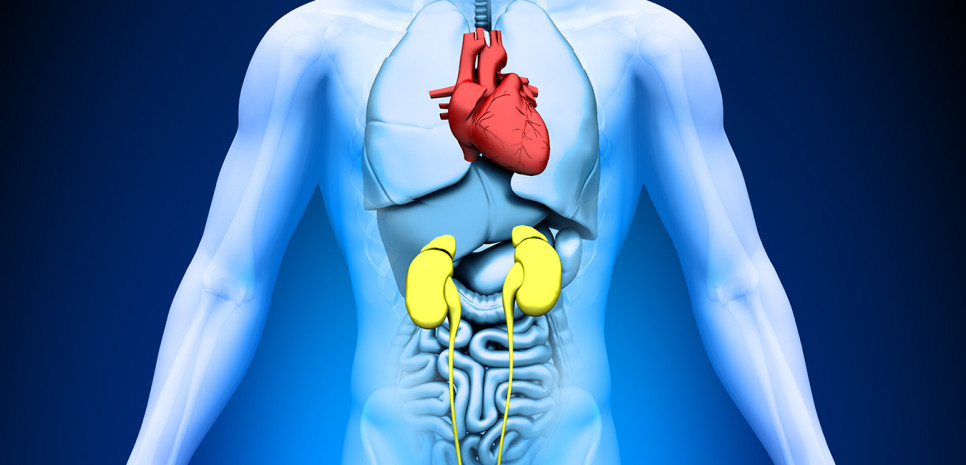You probably already know that people with heart problems, obesity, and diabetes have a higher risk with COVID-19. These conditions increase the chances that you will need to be hospitalized, require a ventilator, and have long-lasting problems because of COVID. Researchers are beginning to understand the links between these diseases and COVID a lot better. They have found that the …
Fermented Foods Can Help Your Health
You may have heard the buzz that fermented foods have benefits for your health. Fermented foods include things like yogurt, sauerkraut, and kimchi (a pickled vegetable dish from Korea) and beverages called kefir and kombucha. These products contain “good” bacteria called probiotics. Eating fermented products increases the good bacteria that naturally live in your intestines. This is called the gut …
New Clues to the Diabetes-Dementia Link
Doctors have known that having type 2 diabetes raises the odds for developing dementia. Now, new research suggests that the age at which your diabetes is diagnosed makes a difference in your risk. The longer you have diabetes, the greater your chances of having problems with thinking skills and memory down the road. That’s worrying because the average age of …
Did You Know? Prediabetes can Harm Your Heart
If you have diabetes, you probably know that you have a higher risk for heart problems. But you may not know that you have a higher risk for heart attacks and strokes if you have prediabetes—a condition where your blood sugar is high but not high enough to be diabetes. A new study, presented at an American College of Cardiology …
NASH: The Health Risk You May Not Even Know You Have
If you’ve put on weight over the last year, you are not alone. Eating more, moving less, and coping with pandemic stress have taken a toll on our bodies and health. Almost a third of Americans reported exercising less than before the COVID crisis hit, according to a poll from the University of Southern California. You probably know how bad …
Can a Low-Glycemic Diet Help Your Heart?
If you’re looking after your health, it’s important to eat plenty of fruits and vegetables. But, as you probably know, some of these foods are better for you than others. Potatoes are fine to eat in moderation, for instance. But cucumbers, spinach, and broccoli are better bets when you want to fill up. One reason for this is that these …
Heart Risks and Pregnancy
More and more, researchers are finding that pregnancy health and related factors in young women are connected to the future heart health of older women. The latest review of 32 studies is the most powerful evidence yet. It is called an “umbrella study,” because it combines the results of many other review studies. Umbrella studies are considered among the highest …
The Heart Benefits of Baths
If you enjoy soaking in a tub, you might be getting more than a big dose of relaxation. Studies show that this soothing activity may improve your heart health. That’s something to consider as the weather begins to turn chilly! High temperatures cause the blood vessels to dilate—and that lowers blood pressure. Plus a warm bath can help to lower …
COVID-19 and You: How to Help Reduce Your Chances of a Bad Case
You’ve probably heard that many people who get COVID-19 have light symptoms or no symptoms at all. Others aren’t so lucky. People with certain conditions are at a greater risk for bad problems when COVID-19 strikes. According to the CDC, obesity, diabetes, and high blood pressure increase the chances that a patient will have severe symptoms or need a machine …
How Poor Sleep Hurts Your Heart
Doctors have known for a long time that getting too little sleep and disrupted sleep are bad for the heart. But they are still figuring out why. A new study in the journal, PLOS, has some hints. Researchers looked at the sleep patterns of more than 1600 people after spending the night in a sleep lab and having other sleep …
The Skinny on Belly Fat
The band of fat around your waistline can make it harder to zip up your favorite pants. But that’s not the worst problem with it. Fat that surrounds your organs in the belly is linked to a greater risk for heart disease and other health problems. This deep belly fat is called “visceral” fat. It is linked to high blood …
Say Yes to Fish Oil!
Confused if you should be taking a fish oil supplement? That’s not surprising. Sometimes headlines say the omega-3 fatty acids in them can lower heart risks. Others say the opposite. But the data in favor of fish oil has been growing. Two recent studies show a strong benefit – especially if you don’t like or can’t eat fish itself. The …
The Not-So-Sweet Link Between Sugar and Heart Disease
To keep your heart healthy, you’ve probably heard it’s good to eat only small amounts of saturated fats like butter and full-fat dairy as well as carbs like white bread and starchy vegetables. But one food ingredient doesn’t get enough attention when it comes to heart health: sugar. More and more research shows that the sweet stuff can be rough …
The 300-Calorie Secret to a Better Heart
You expect to lose weight when you eat less. But what if eating a little less also lowered your blood pressure, improved your cholesterol, reduced inflammation in your body, and helped with blood sugar control? Looks like it does. That was the surprising finding of a recent study in the Lancet Diabetes & Endocrinology. It followed 218 people ages 21 …
Young women, heart attacks and how to prevent them
Here’s some good news about heart disease, the number one killer of Americans: the rate of heart attacks and strokes is dropping and has been for decades. That means you are less likely to develop these problems than in the past. But there’s bad news, too: heart attacks are striking more young people, particularly younger women. New research shows that …
Top Herbs for Your Heart
A healthy diet is the first step toward a healthier heart. Eating lots of vegetables, fruits, beans, whole grains, healthy fats like olive oil, and lean protein like fish and chicken, can’t be beat for preventing heart attacks and strokes. But how you prepare these foods also makes a big difference. A variety of herbs have been shown to give …
Late Night Eating and Your Heart
The rich foods and sweet treats of the holidays can make it hard to keep a heart-healthy diet. But one small change in your eating habits could help: eating the day’s larger meals in the middle of the day. You probably know that what you eat and how much you eat is very important to your heart and your health. …
New Heart Benefits of Vitamin D
Vitamin D plays many important roles in the body—from strengthening your bones to boosting your immune system to help keep you healthy. Research also shows it keeps your heart and blood vessels in good working condition. Here are a few of the ways the so-called “sunshine vitamin” keeps the heart strong and healthy: Preventing stroke A new report from Italy …
Pregnancy and Heart Risks
The Surprising Heart Risks of High-Risk Pregnancies Heart disease is usually the last thing on a woman’s mind during pregnancy. But if her pregnancy is high risk, her future heart health may be on the line, accumulating research suggests. Recent studies show that women with high-risk pregnancies or complications, such as gestational diabetes and preeclampsia—a hypertensive condition related to pregnancy—have …
Diabetes Drugs that Lower Heart Risks
Of all the complications of diabetes, including blindness, neuropathy (i.e., nerve pain), amputations, and kidney failure, the most dangerous—heart disease—is often paid the least attention. Yet people with diabetes are more than twice as likely to develop heart problems than those without diabetes, and the majority of people with type 2 diabetes will eventually die from cardiovascular ills such as …
Novel Clues to Your Diabetes Risk
About 30 million Americans — more than 9 percent of the population — currently have diabetes, and one in three Americans is expected to have diabetes by 2050. Diabetes happens when your blood glucose, or blood sugar, levels are too high. Over time, the extra glucose can wreak havoc on health, damaging the eyes, kidneys and nerves and leading to …
Diabetes and Heart Disease: A Deadly Connection
Diabetes, which affects the body’s use of insulin, has consequences for every system in the body — perhaps none more so than the heart. About 30 million Americans — more than 9 percent of the population — have diabetes, and the rates are on the rise. By 2050, one in three Americans is expected to have diabetes. Over time, the …
Sitting is the New Smoking
Is Sitting the New Smoking? The headlines on the health dangers of sitting are hard to ignore. Inactivity has been recognized as an independent risk factor for heart attack and stroke—as dangerous as smoking cigarettes. Now the American Heart Association (AHA) has issued a strongly worded advisory aimed at getting people up and moving, even those who are already physically …
A New Eating Peril: The Social-Business Diet
When it comes to our eating habits, it doesn’t get much grimmer than the Western diet. High in fat, red and processed meats, salt, and sugar and low in healthful plant foods, it’s the predominant eating pattern in the U.S.—and increasingly in other parts of the world—and solidly linked to heart disease, diabetes, cancer, and other chronic conditions. But recently …
The Hidden Disease That Triples Heart Attack Risk
It’s extremely common for people to be diagnosed with diabetes soon after they’ve suffered a heart attack, according to a new study presented at the American Heart Association’s (AHA) 2015 Scientific Sessions. Patients often chalk this double whammy up to bad luck, believing that they were inexplicably hit with two unrelated conditions at once. In reality, having diabetes–particularly if it’s …
Novel Biomarker Test for Cardiovascular Disease Risk Now Available from Cleveland HeartLab
A novel biomarker called ADMA/SDMA is an independent predictor of heart attack risk and may also identify patients with diabetes, pre-diabetes or kidney disease, according to recent peer-reviewed studies. The ADMA/SDMA biomarker blood test, now available through Cleveland HeartLab (CHL), measures levels of asymmetric dimethylarginine (ADMA) and symmetric dimethylarginine (SDMA). Elevated levels of these biomarkers can signal damage to the …
The Vitamin That Fights Inflammation
A new study is the first to show that combining weight loss with an inexpensive vitamin supplement can reduce chronic inflammation more than weight loss alone. Chronic inflammation has been linked to a wide range of disorders, from cardiovascular disease to type 2 diabetes, Alzheimer’s disease, depression, and even cancer. The findings from a randomized clinical trial at Fred Hutchinson …
4 Tasty Anti-Inflammatory Herbs and Spices That Boost Heart Health
Used as a natural “medicine” for thousands of years, certain herbs and spices really do have amazing health benefits, including fighting chronic inflammation, which has been linked to a wide range of conditions, from heart disease to diabetes, Alzheimer’s disease, and even cancer, according to new studies. Here’s a look at four delicious seasonings that rank as anti-inflammatory standouts. Curcumin: The …
Dangerous Cluster of Heart Disease & Diabetes Risks Affects 35% of Americans
More than one in three US adults have metabolic syndrome, a combination of at least three of five pre-disease-state factors, that doubles risk for heart disease and quintuples the risk for type 2 diabetes, according to a new study published in the Journal of the American Medical Association. The study reported that from 2003-2004 to 2011-2012, overall rates of metabolic syndrome …
Telomere Testing May Predict Lifespan and Health Risks
Telomere Testing May Predict Health Risks Years in Advance The length of telomeres — protective caps at the end of chromosomes often compared to plastic tips on shoelaces — could be an important predictor of increased danger for a range of disorders, from cancer to cardiovascular disease and type 2 diabetes. What’s more, telomere testing may identify patients at risk …
5 Ways to Tell If You Have Chronic Inflammation
Cardiovascular disease (CVD), diabetes and cancer have shared risk factors, including systemic inflammation, University of Colorado Cancer Center investigator Tim Byers, MD, MPH reported at the American Association for Cancer Research Annual Meeting 2015. For example, says Dr. Byers, “Obesity leads to a chronic inflammatory state and circulating growth factors that have adverse effects on the heart, and can also …
4 Surprising Causes of High Blood Pressure
About 70 million Americans–one in three adults–have high blood pressure, but only about half of them have it under control. That’s alarming since a new study by the CDC reports that U.S. deaths related to hypertension (HTN) have soared by 61.8 percent, from 245,220 in 2000 to 396,675 in 2013. The researchers examined files from the National Vital Statistics System …
How Effective Are Anti-Inflammatory Diets for Lowering Heart Attack Risk?
In advice that many American have taken to heart, Hippocrates wrote, “Let food be thy medicine.” In fact, diets to reduce chronic inflammation–which is linked to disorders ranging from heart attacks and strokes to type 2 diabetes, Alzheimer’s disease and even cancer–have become a health craze. However, there’s debate about which eating plan–and foods–offers the greatest cardiovascular and anti-inflammatory benefits. …
6 Surprising Ways Chronic Inflammation Affects Health
In a medical version of the “unified field” theory in physics, many scientists now believe that most—or perhaps all—chronic diseases may have the same trigger: inflammation. Studies have linked this fiery process to a wide range of disorders, from heart attacks and strokes to type 2 diabetes, Alzheimer’s disease, chronic pain, and even cancer. Here is a look at six …
6 Ways Women May Reduce Their Heart Disease Risk by 92%
Following six healthy lifestyle habits may reduce women’s risk for heart disease by 92 percent, compared to women with none of these habits, a new study published in Journal of American College of Cardiology suggests. Researchers from Harvard and other centers tracked 88,940 women whose ages were 27 to 44 at baseline over a 20-year period. With February marking American …
Help Patient’s Slash Sugar with a Few Simple Tips
There’s no question that an excess of sugar in the American diet is one of many lifestyle contributors in the obesity epidemic. What’s most alarming is the growing link between excess sugar and abdominal fat, visceral fat, low HDL and elevated triglycerides, not to mention risk of heart disease and diabetes. Back in 2010, as a response to the growing …




































